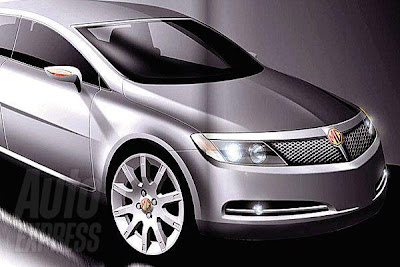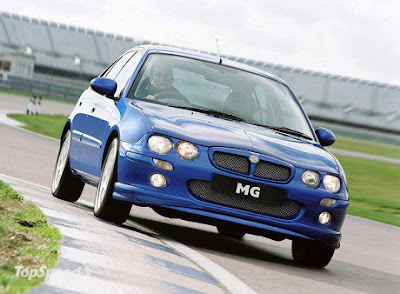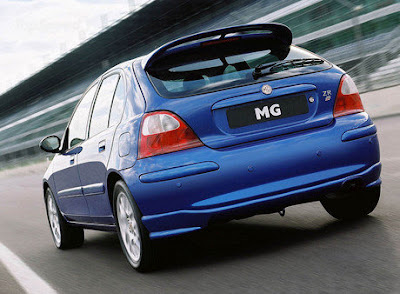Rolls Royce Silver Spur Galleries
7:30 PM
Posted by
veron
0
comments
Lancia Lambda Innovative Automobile
7:24 PM
Posted by
veron
0
comments
The British Motor Corporation (BMC) Part 4
The mid-sized Farinas were launched in 1958 with the Wolseley 15/60. Other members of the group included the Riley 4/68, Austin A55 Cambridge Mk II, MG Magnette Mk III, and Morris Oxford V. Later, the design was licensed in Argentina and produced as the Di Tella 1500/Traveller/Argenta. The mid-size cars used the B-Series straight-4 engine.
Most of these cars lasted until 1961, though the Di Tellas remained until 1965. They were replaced with a new Farina body style and most were renamed. These were the Austin A60 Cambridge, MG Magnette Mk. IV, Morris Oxford VI, Riley 4/72, and Wolseley 16/60. These mostly remained in production until 1968, with no rear wheel drive replacement produced.
Farina also designed a large car. Launched in 1959 as the Austin A99 Westminster, Vanden Plas Princess 3-Litre, and Wolseley 6/99, it used the large C-Series straight-6 engine. The large Farinas were updated in 1961 as the Austin A110 Westminster, Vanden Plas Princess 3-Litre Mk. II, and Wolseley 6/110. These remained in production until 1968.
Most of these cars lasted until 1961, though the Di Tellas remained until 1965. They were replaced with a new Farina body style and most were renamed. These were the Austin A60 Cambridge, MG Magnette Mk. IV, Morris Oxford VI, Riley 4/72, and Wolseley 16/60. These mostly remained in production until 1968, with no rear wheel drive replacement produced.
Farina also designed a large car. Launched in 1959 as the Austin A99 Westminster, Vanden Plas Princess 3-Litre, and Wolseley 6/99, it used the large C-Series straight-6 engine. The large Farinas were updated in 1961 as the Austin A110 Westminster, Vanden Plas Princess 3-Litre Mk. II, and Wolseley 6/110. These remained in production until 1968.
Posted in
British Motor Corporation (BMC),
Mg Classic Cars
![]()
Standard Vanguard Classic Funny Cars
2:12 AM
Posted by
veron
0
comments
Classic Cars Galleries
6:26 PM
Posted by
veron
0
comments
1933 BMW 303 Limousine
 now we present the classic car and unique car was popular in long time, The old and classic car BMW 303 was the first BMW to use an inline-6 engine and the kidney grill, which today is a hallmark of the company's models.
now we present the classic car and unique car was popular in long time, The old and classic car BMW 303 was the first BMW to use an inline-6 engine and the kidney grill, which today is a hallmark of the company's models. Top speed was approximately 100 km/h (62 mph), and the total 303 production was 2300 units, both saloons and cabriolets were manufactured.
Posted in
BMW
![]()
1932 BMW 320 PS Tourer
8:45 PM
Posted by
veron
0
comments
Classic Car : 1929 BMW 315 PS DA 2
8:38 PM
Posted by
veron
0
comments
1936 Audi Auto Union Type C
8:14 PM
Posted by
veron
0
comments
Auto Union was an amalgamation of four German automobile manufacturers, established in 1936 in Chemnitz, Saxony, during the Great Depression. The company has evolved into present day Audi, as a subsidiary of Volkswagen Group.
Auto Union is best known for its racing team (Auto Union Rennabteilung, based at Horch works in Zwickau/Saxony). The Silver Arrows of these two German teams (Mercedes Benz and Auto Union) dominated not only GP car racing from 1934 onwards, but set records that would take decades to beat. For example, the power levels of the unlimited 1937 models were only equalled in the early 1980s by turbocharged Formula One Grand Prix cars.
source : http://en.wikipedia.org/wiki/Auto_Union
Posted in
Audi
![]()
1929 Audi Imperator
7:39 PM
Posted by
veron
0
comments
This historic car was discovered in the German state of Saxony at the end of the 1990s, and purchased by Audi Tradition. Its history is exciting to recall: as was frequently the case in the 1920s, the customer (who must have been wealthy, since the car cost more than 16,000 Reichsmarks even then, as much as a small house) bought the Imperator as a chassis with engine. This ‘platform’ was delivered to a coachbuilder where the customer selected the bodywork of his choice or had it designed. In view of this, Peter Spillner had to conjure up something special. He explains his approach: “We looked at the original photographs in the Audi archives and decided to build an open touring car with a phaeton body.” The colour, too, was based on detective work: one of the headlights still bore traces of the original paint, which is best described somewhere between olive green and brown. Spillner, who is 35 years of age, and his colleagues visited several museums in their quest for detail authenticity. He recalls: “We studied cars of a comparable age, because all the manufacturers at that time had the same outside suppliers.”
Audi introduced the Imperator at the end of the 1920s as the successor to the innovative Audi Type M six-cylinder model, but it was not destined to be a great success. The eight-cylinder Imperator appeared right in the middle of a period of economic difficulty for the then Audi Werke, which culminated in a takeover by the founder of DKW, Jörgen Skafte Rasmussen, though the situation deteriorated still further as the world economic crisis broke out. Only 145 Audi Imperators were built. Ralf Hornung, who is responsible at Audi Tradition for the purchase and restoration of historic vehicles, explains: “The Imperator was an excellent car, but it reached the market at the wrong time.” According to the oldtimer specialist this particular car, the last remaining anywhere in the world, had a long series of owners and probably only survived for a very special reason. “We suspect that it there was a plan for it to be used by a fire brigade. They tend to treat their vehicles very well. The luxury car was certainly in passable condition when it was purchased by Audi. Spillner: “The original engine was still a runner.”
article source : http://www.cartype.com/pages/3265/audi_imperator__1929
Posted in
Audi
![]()
Subscribe to:
Comments (Atom)






